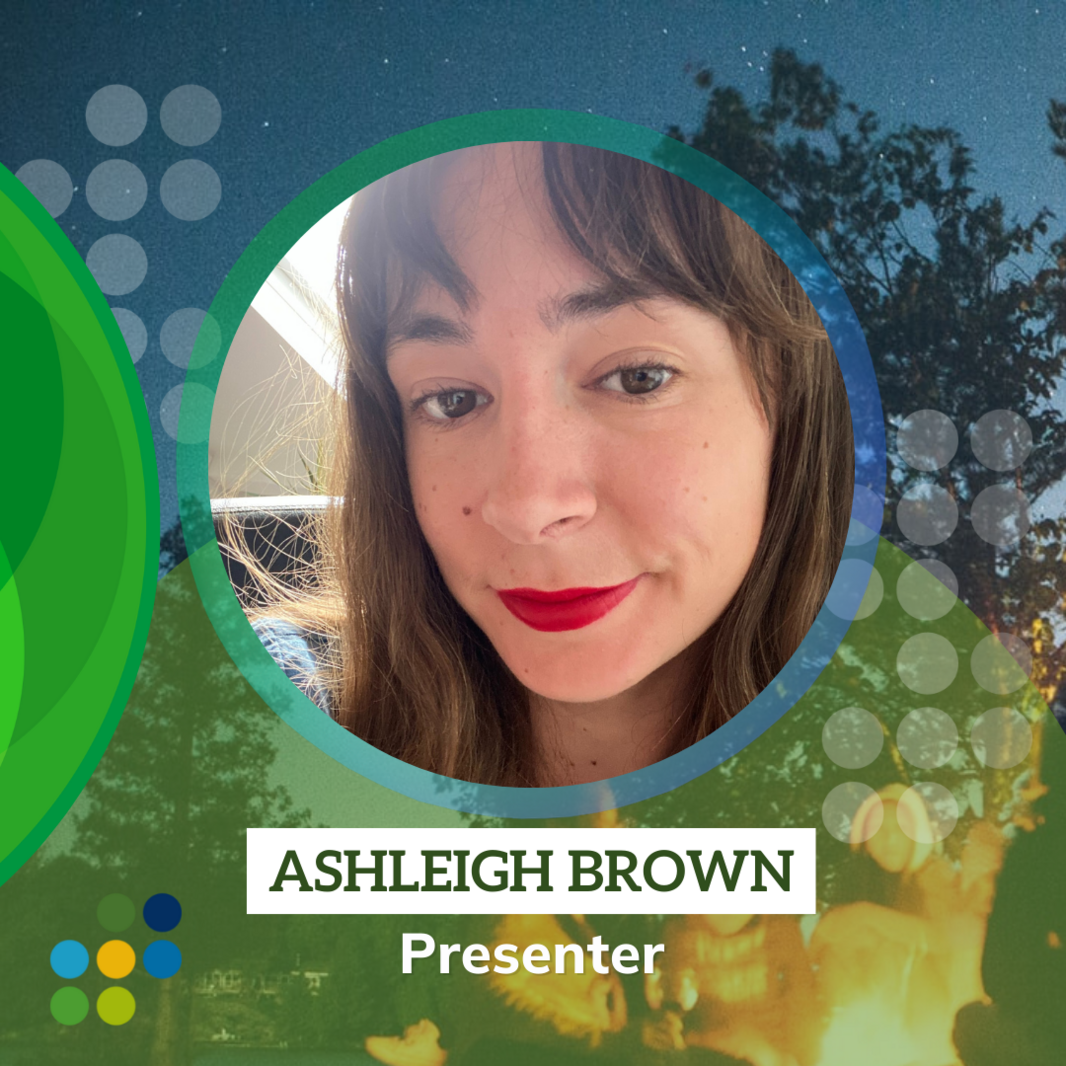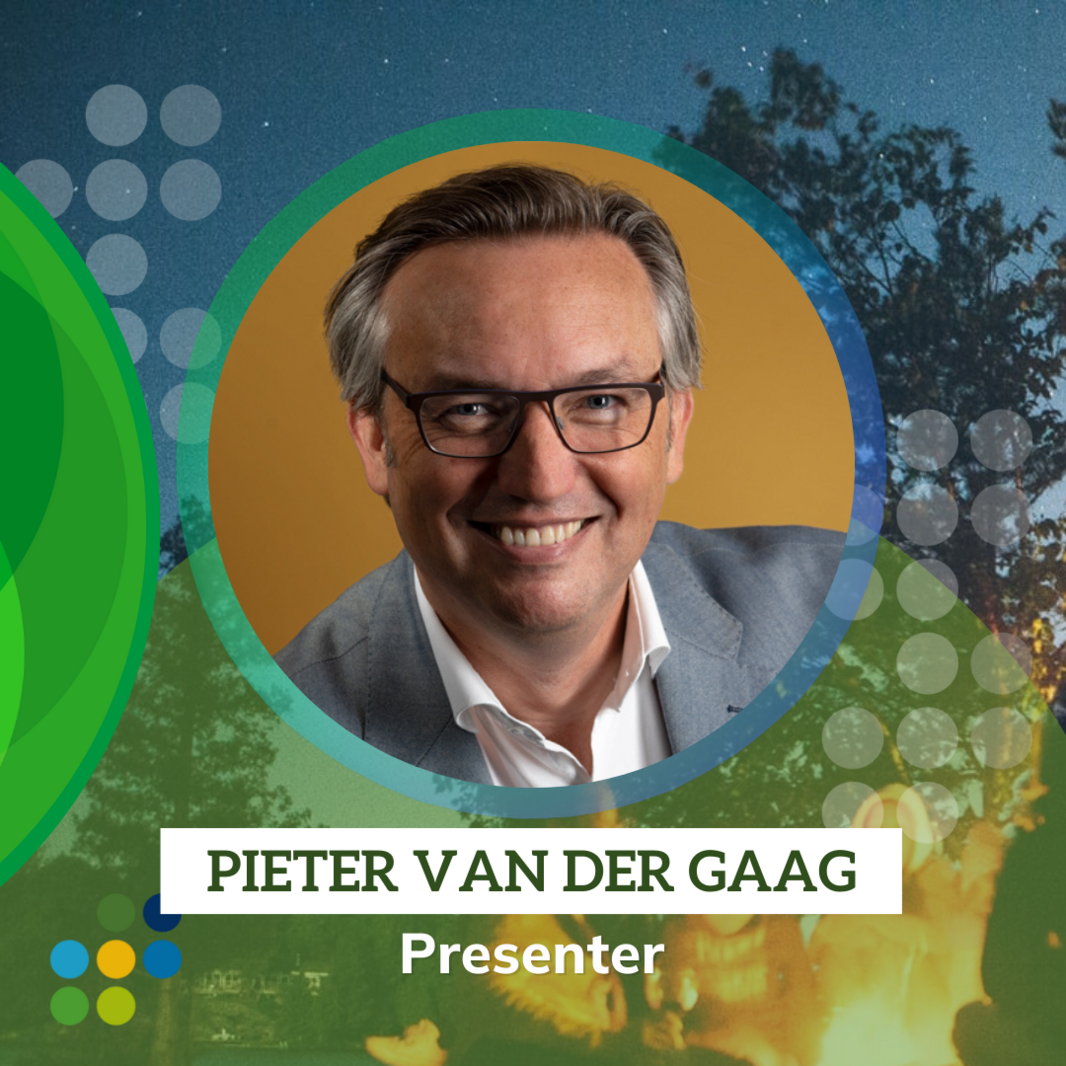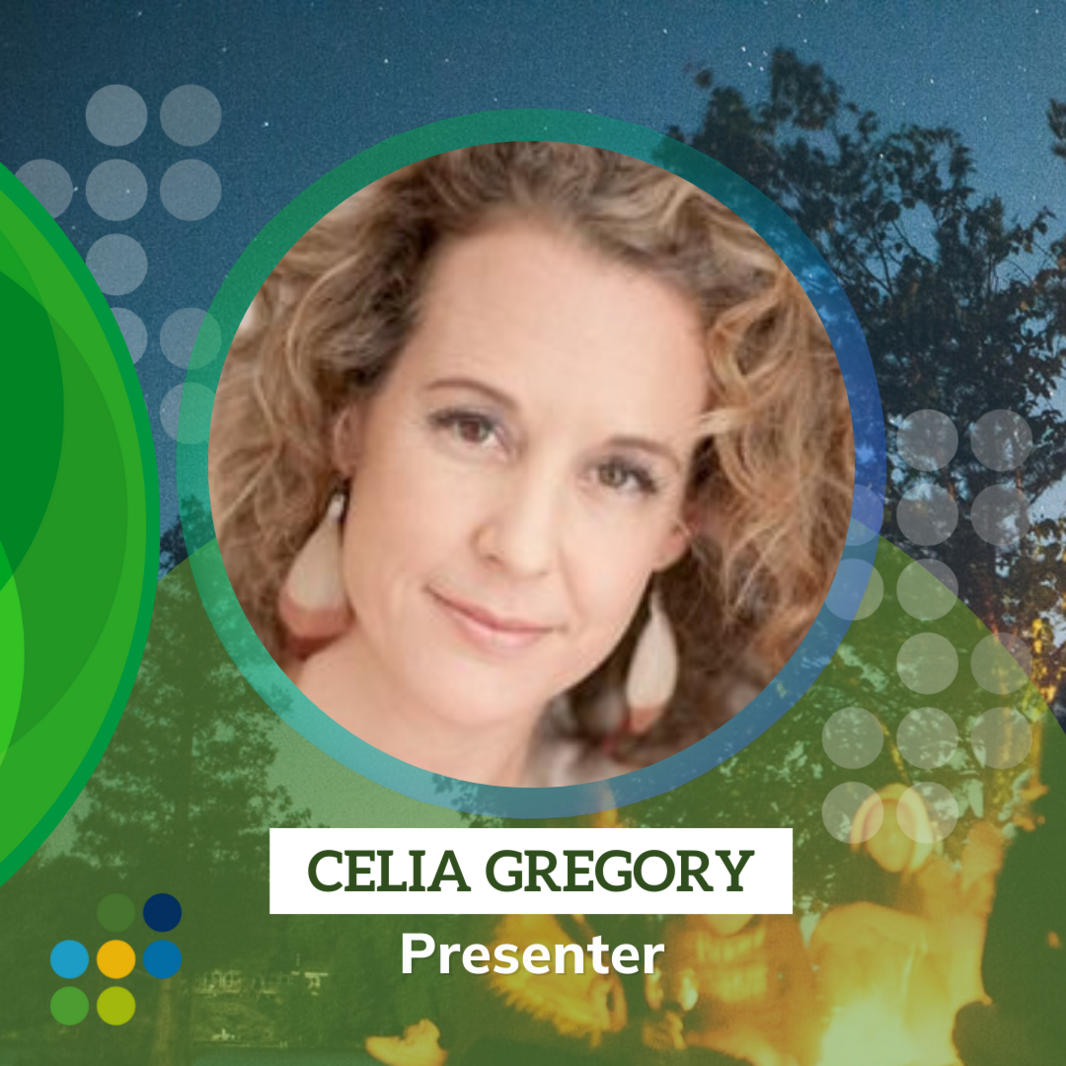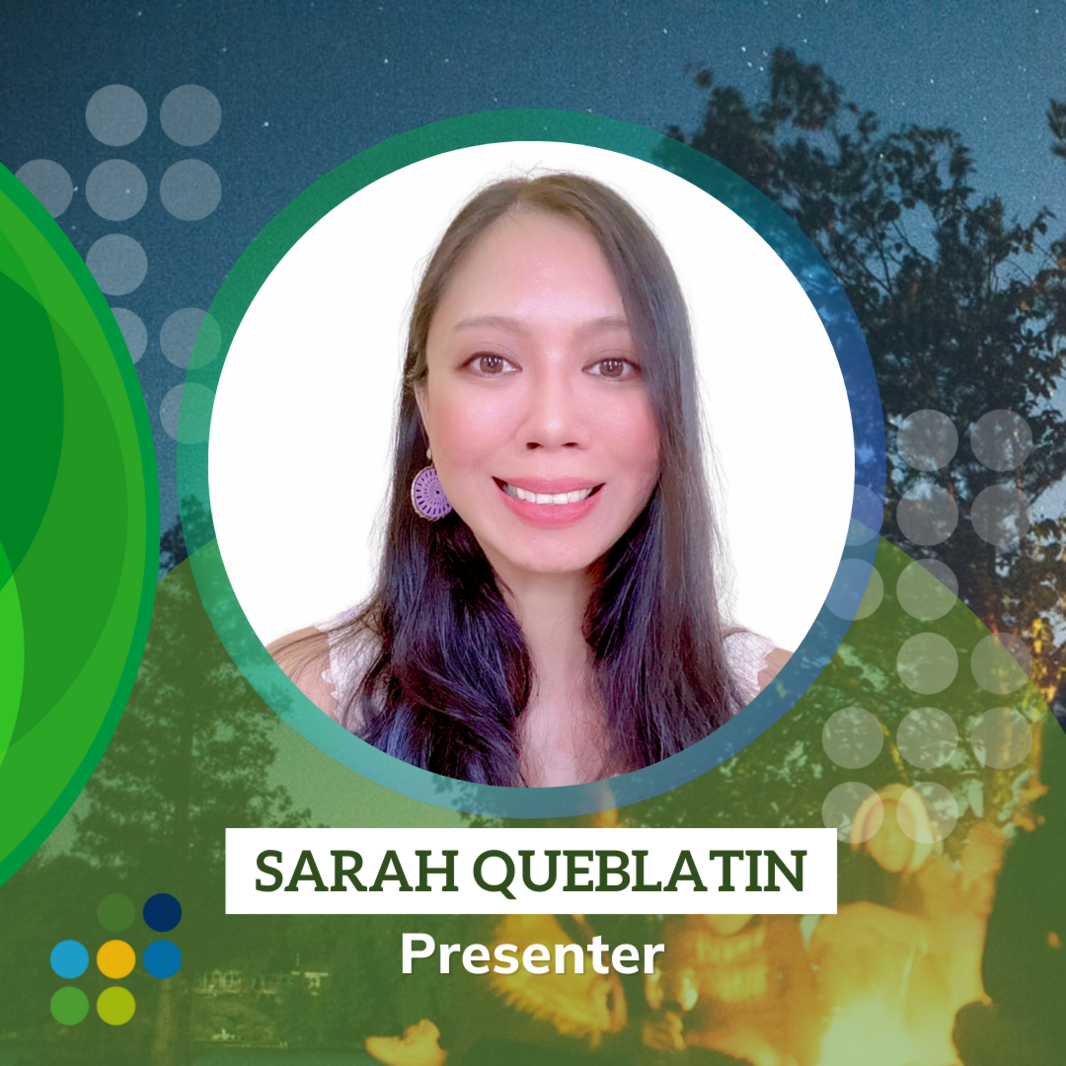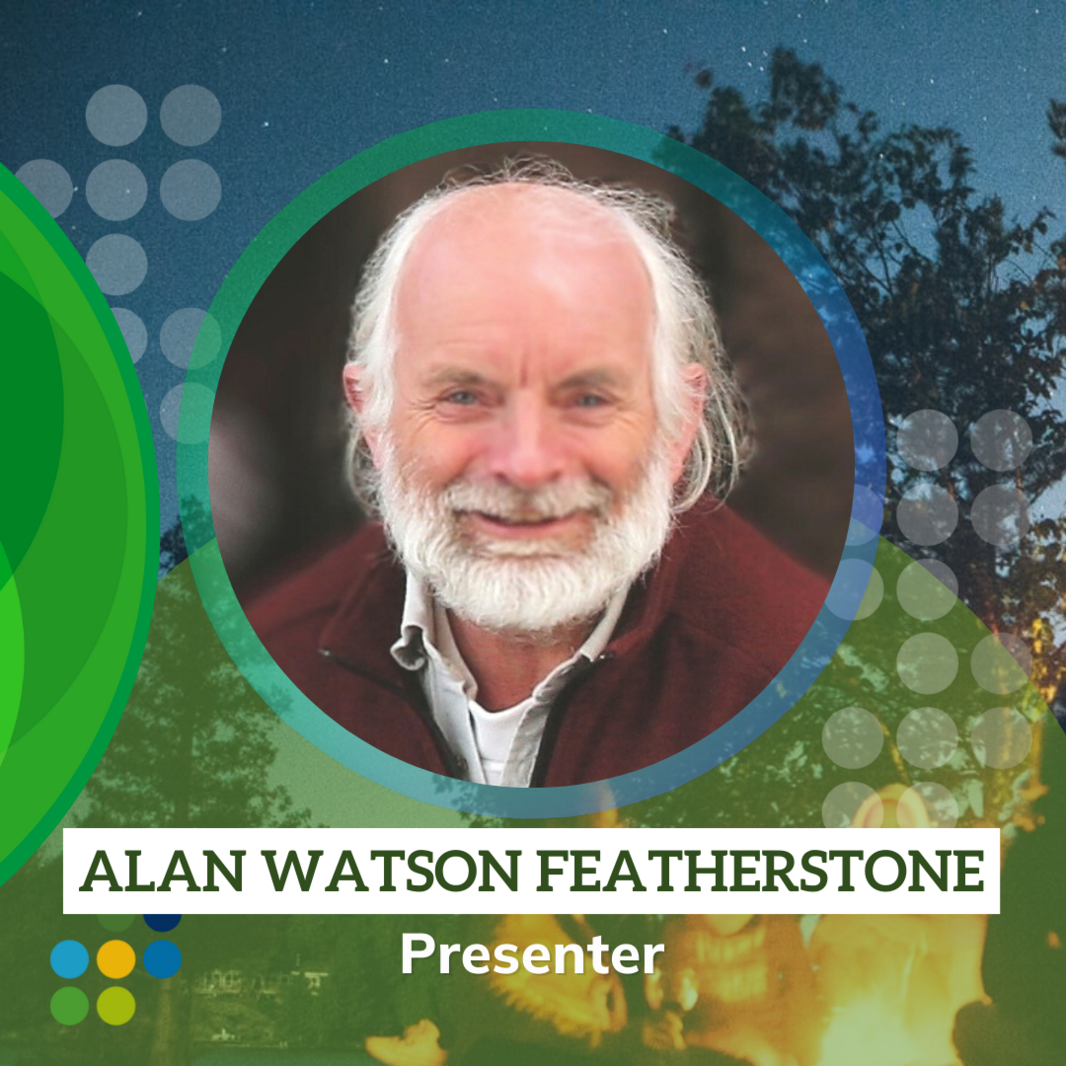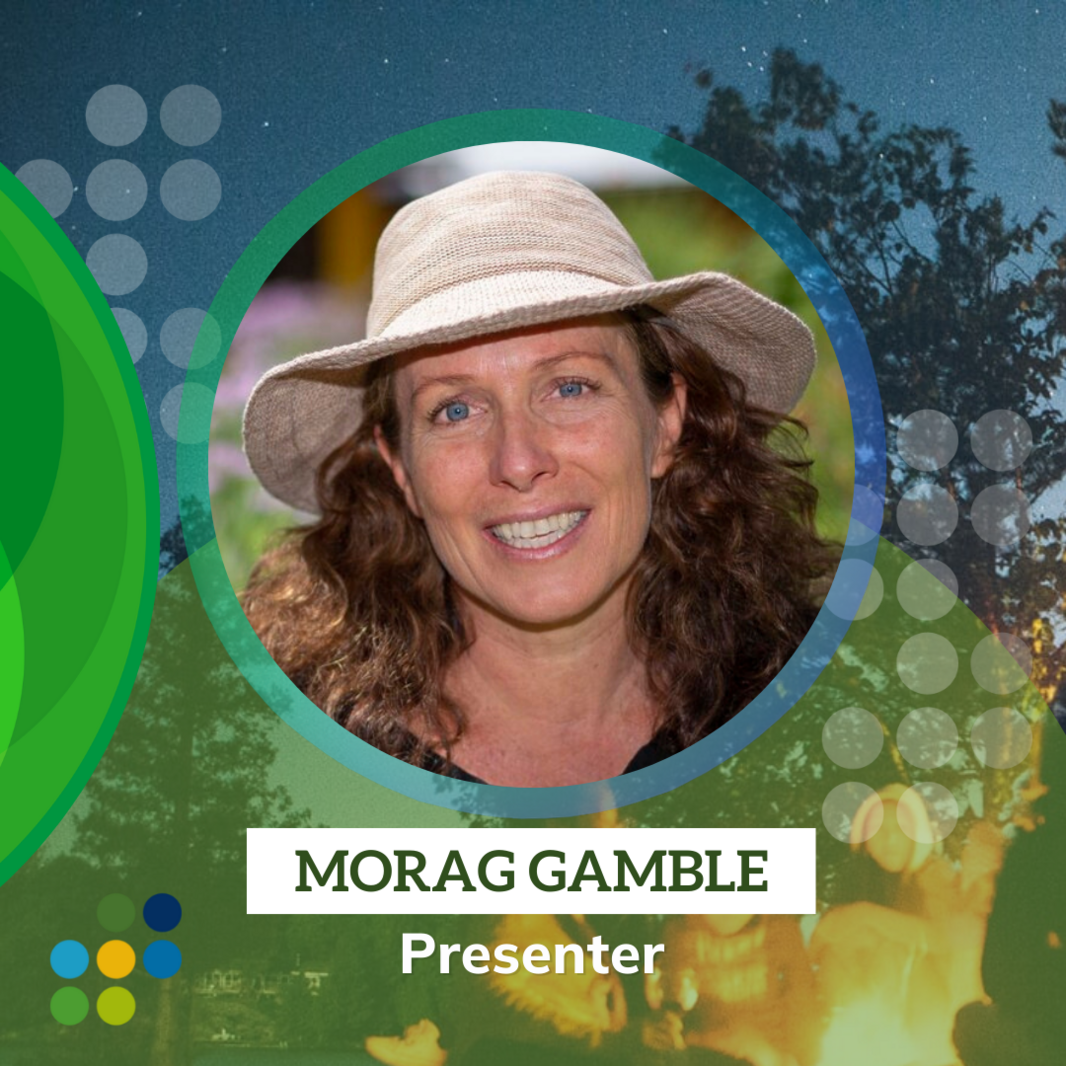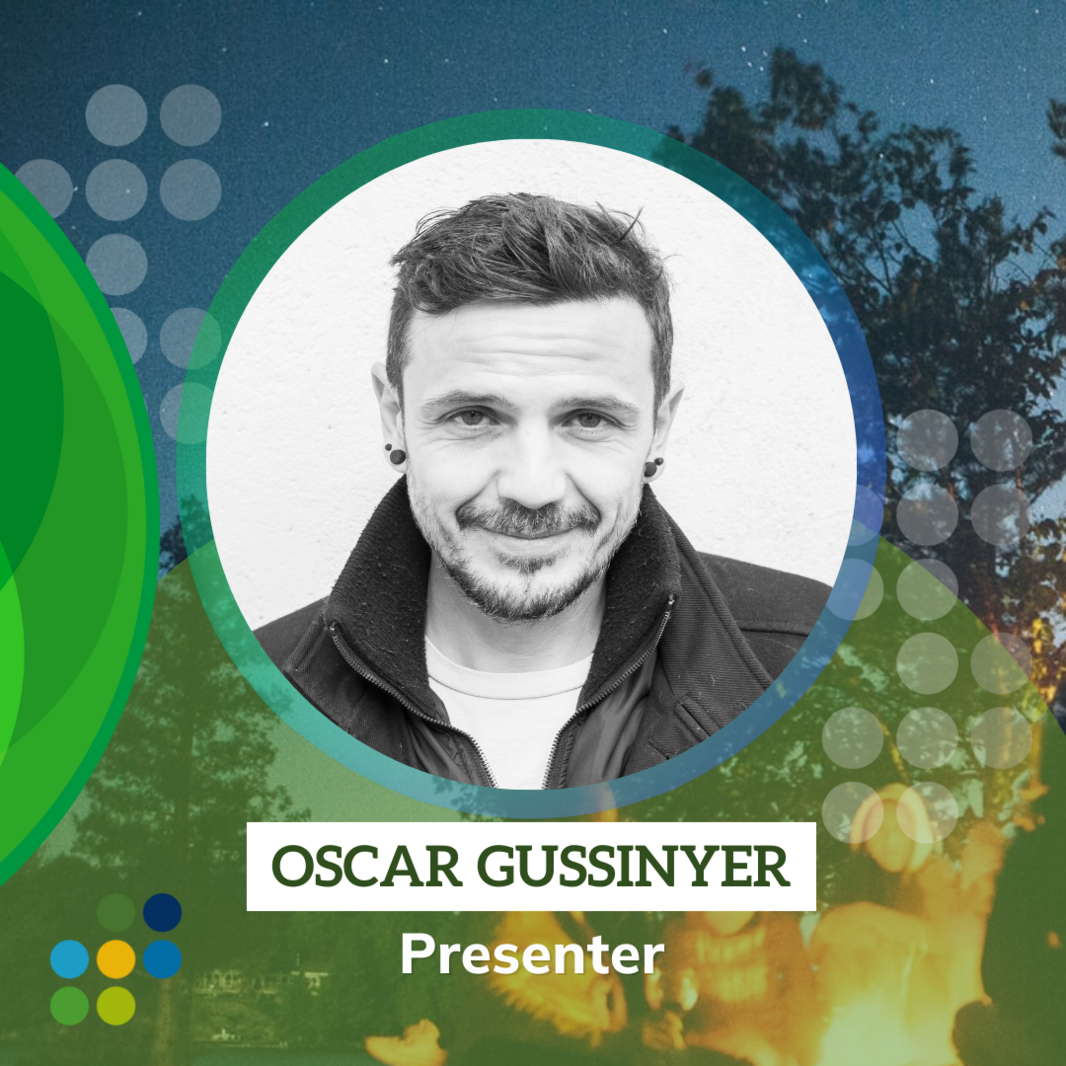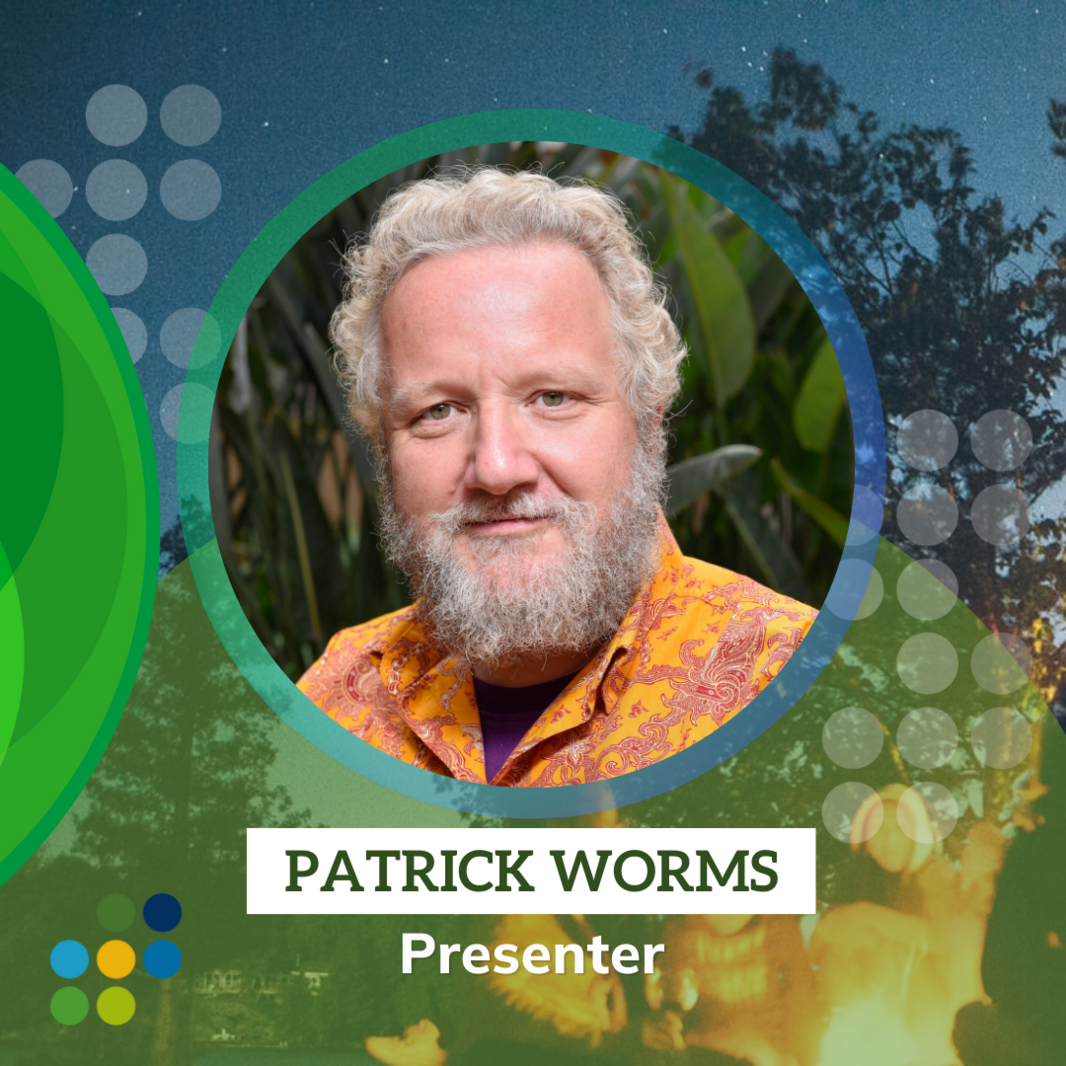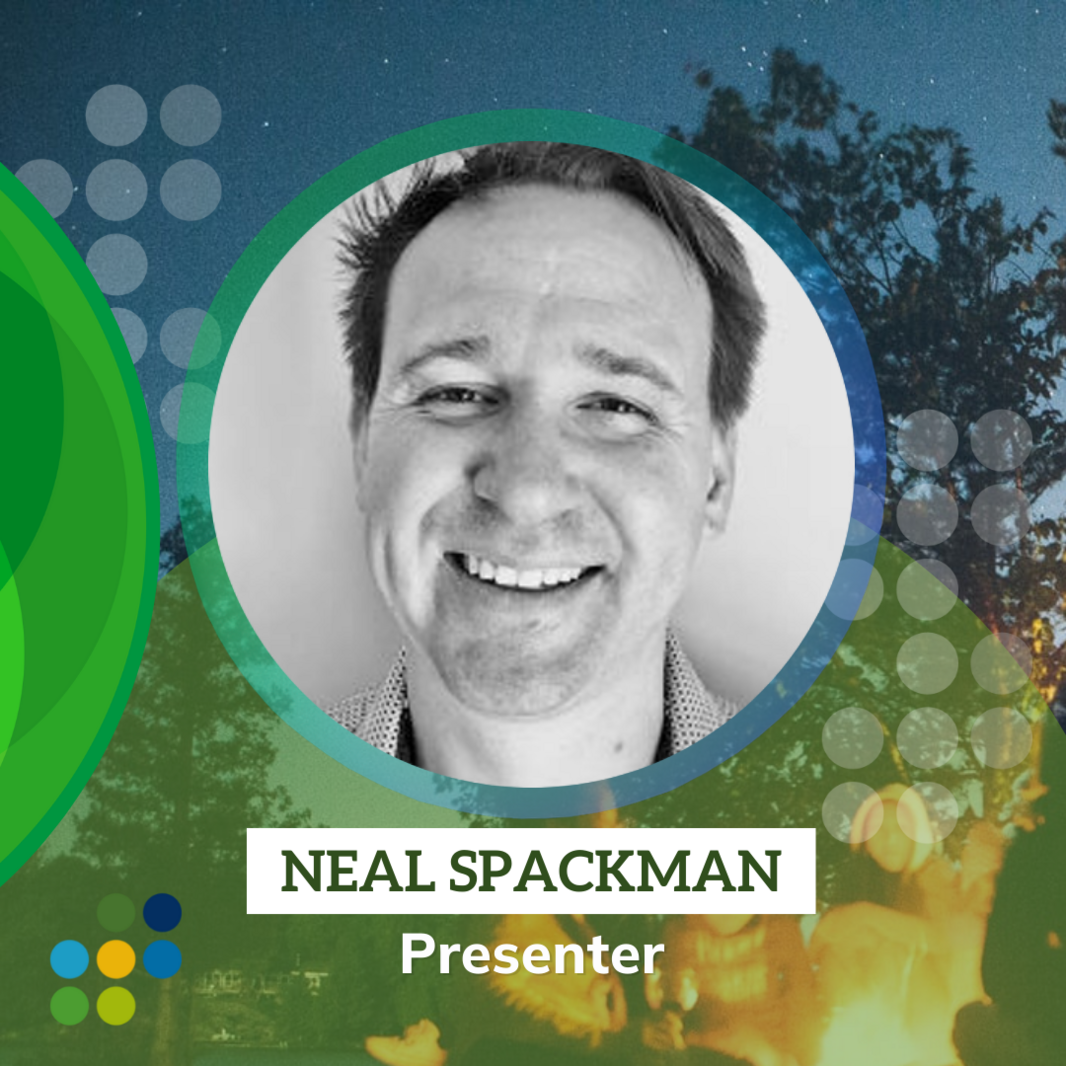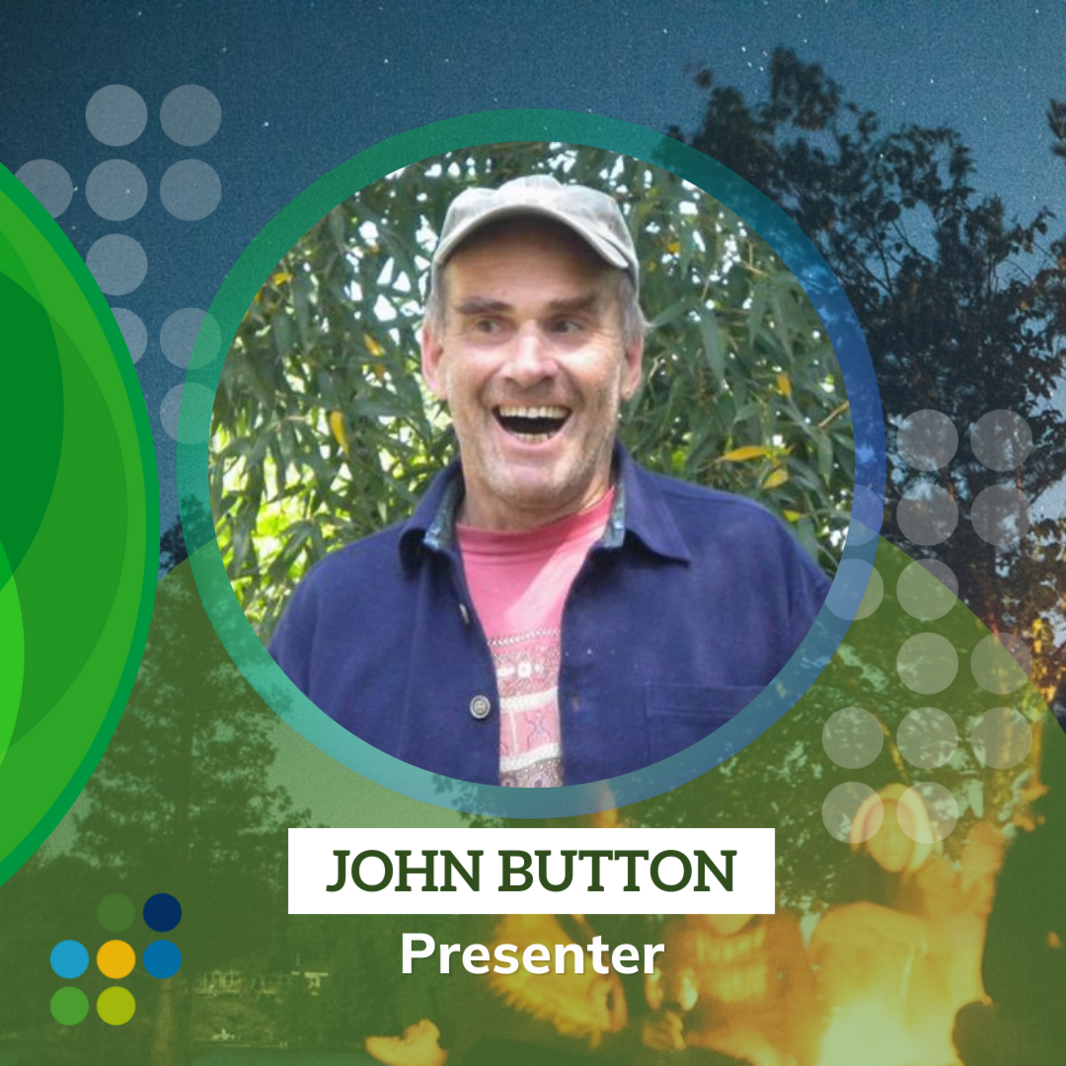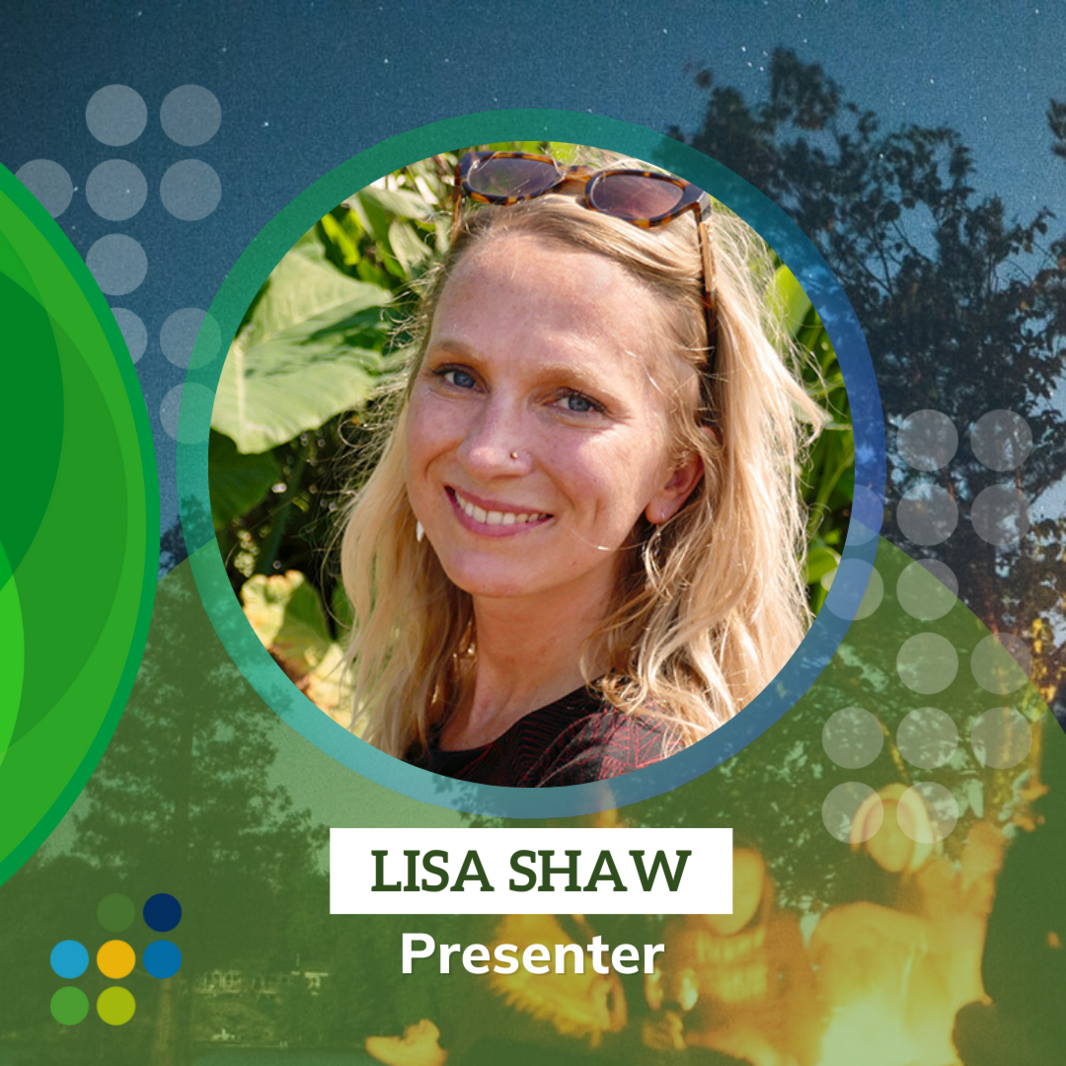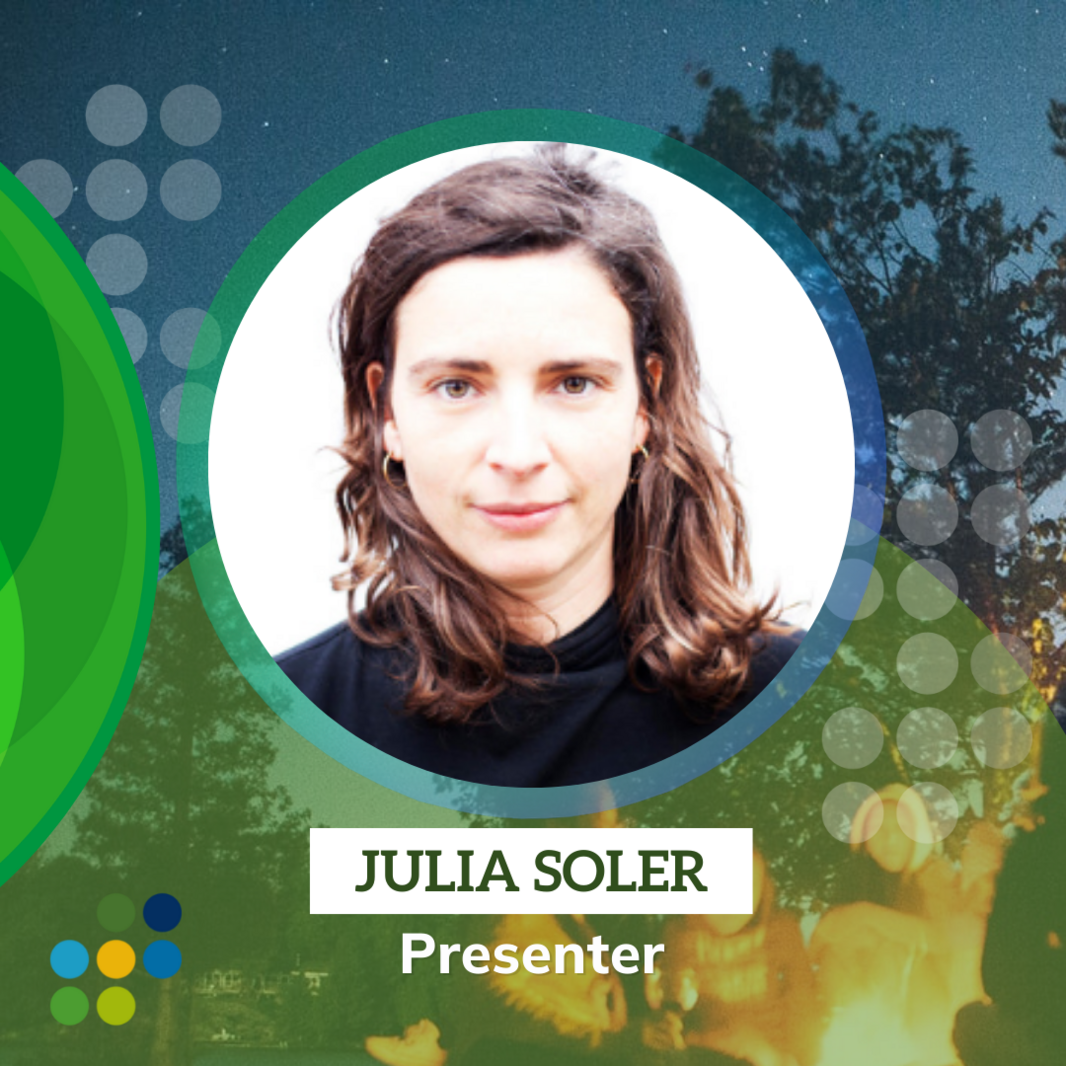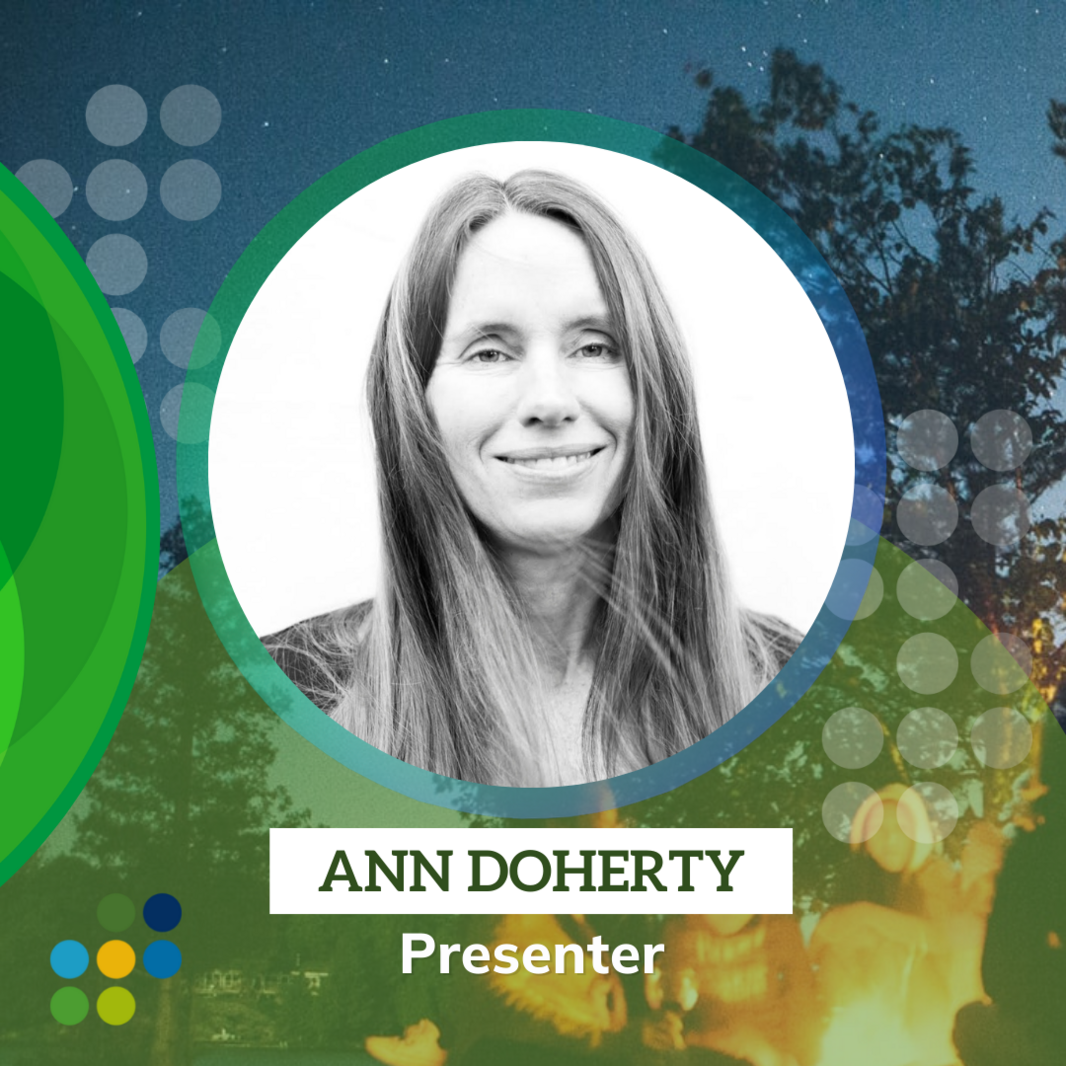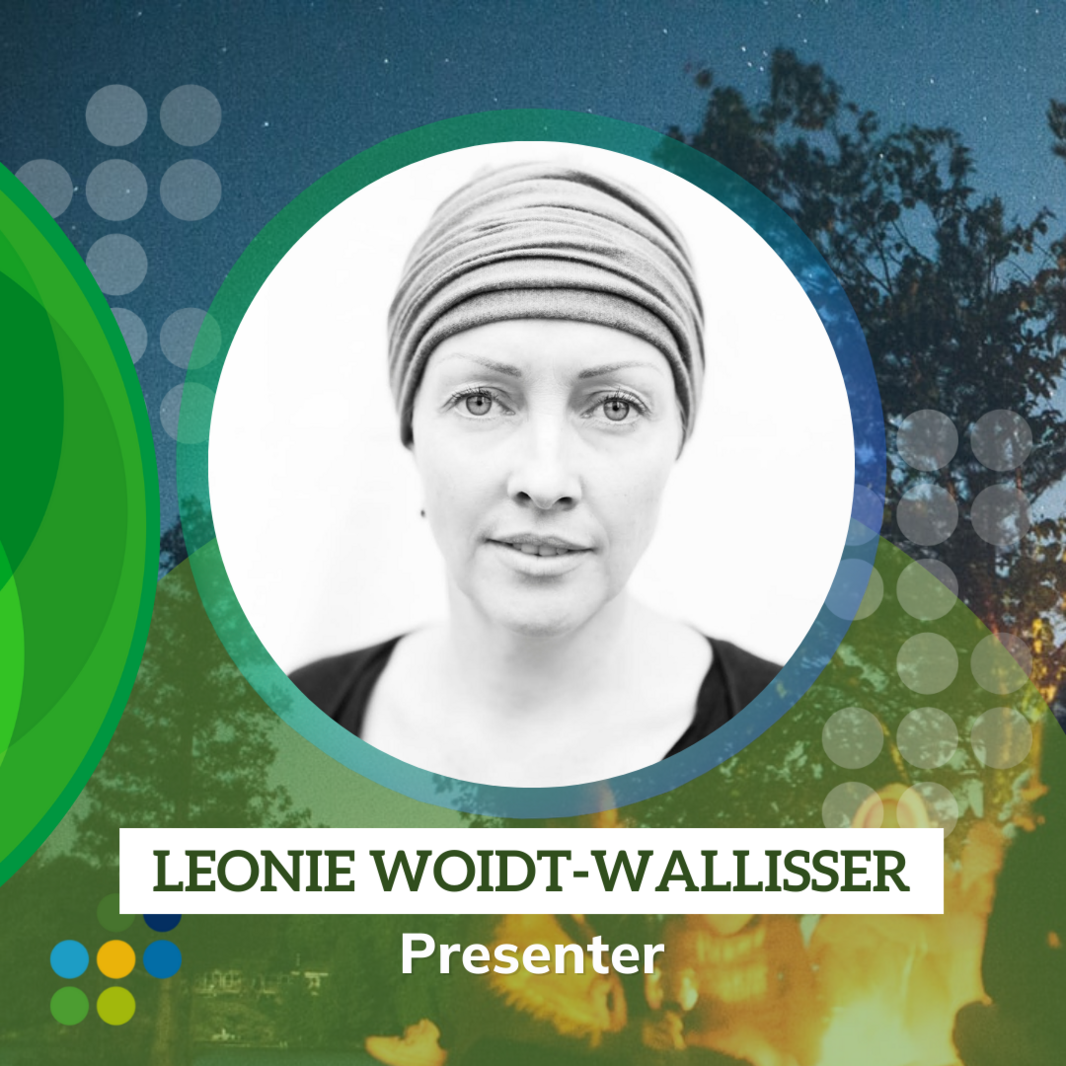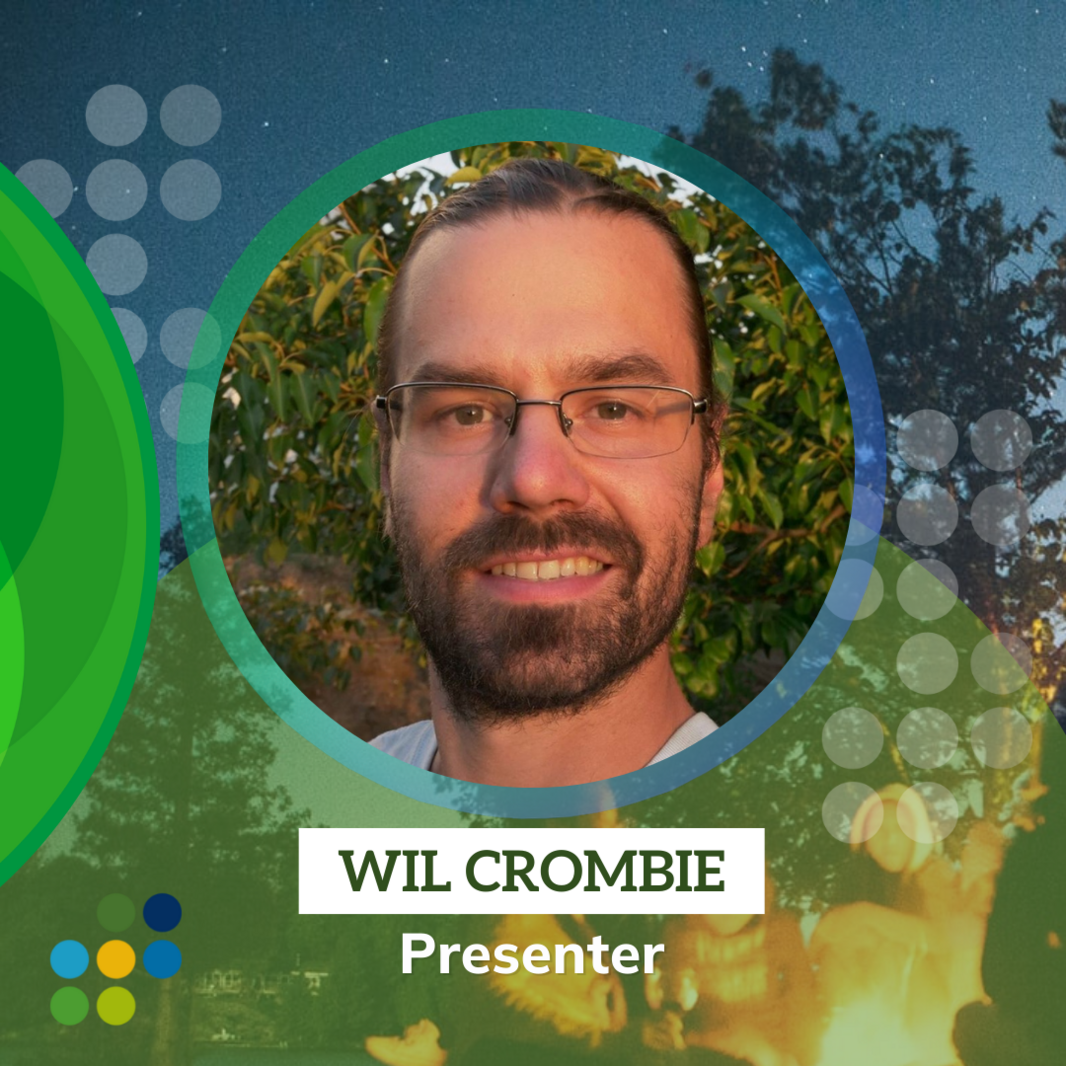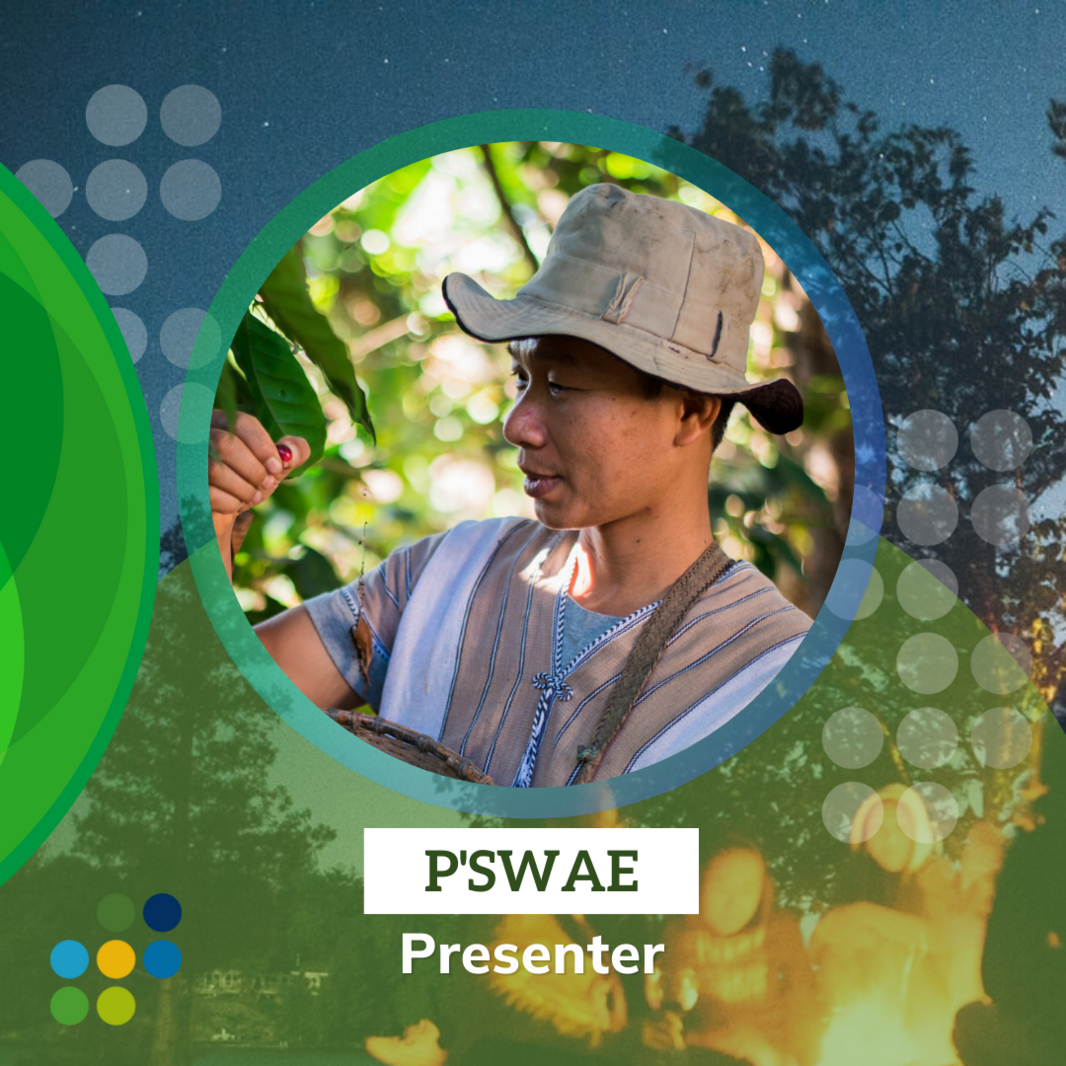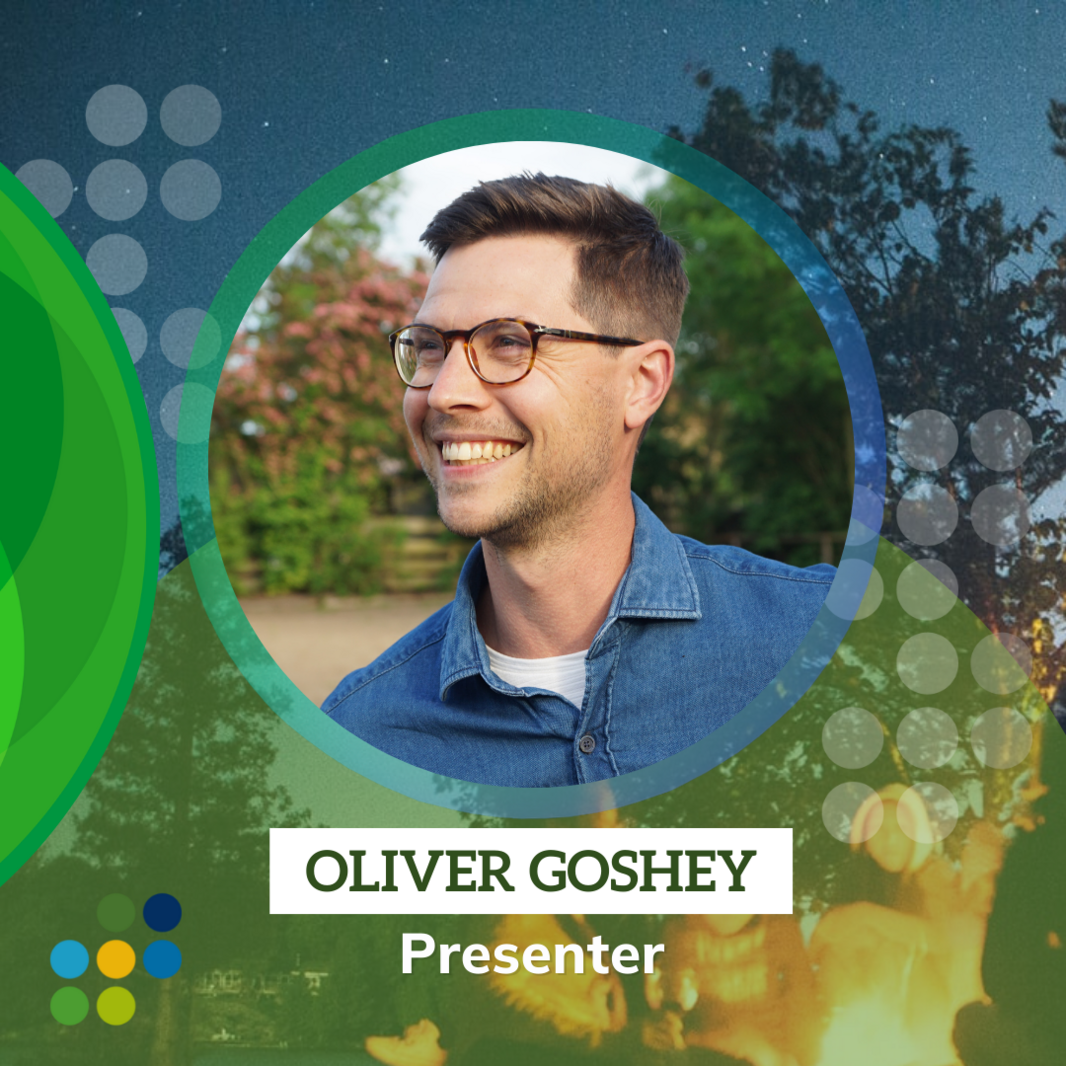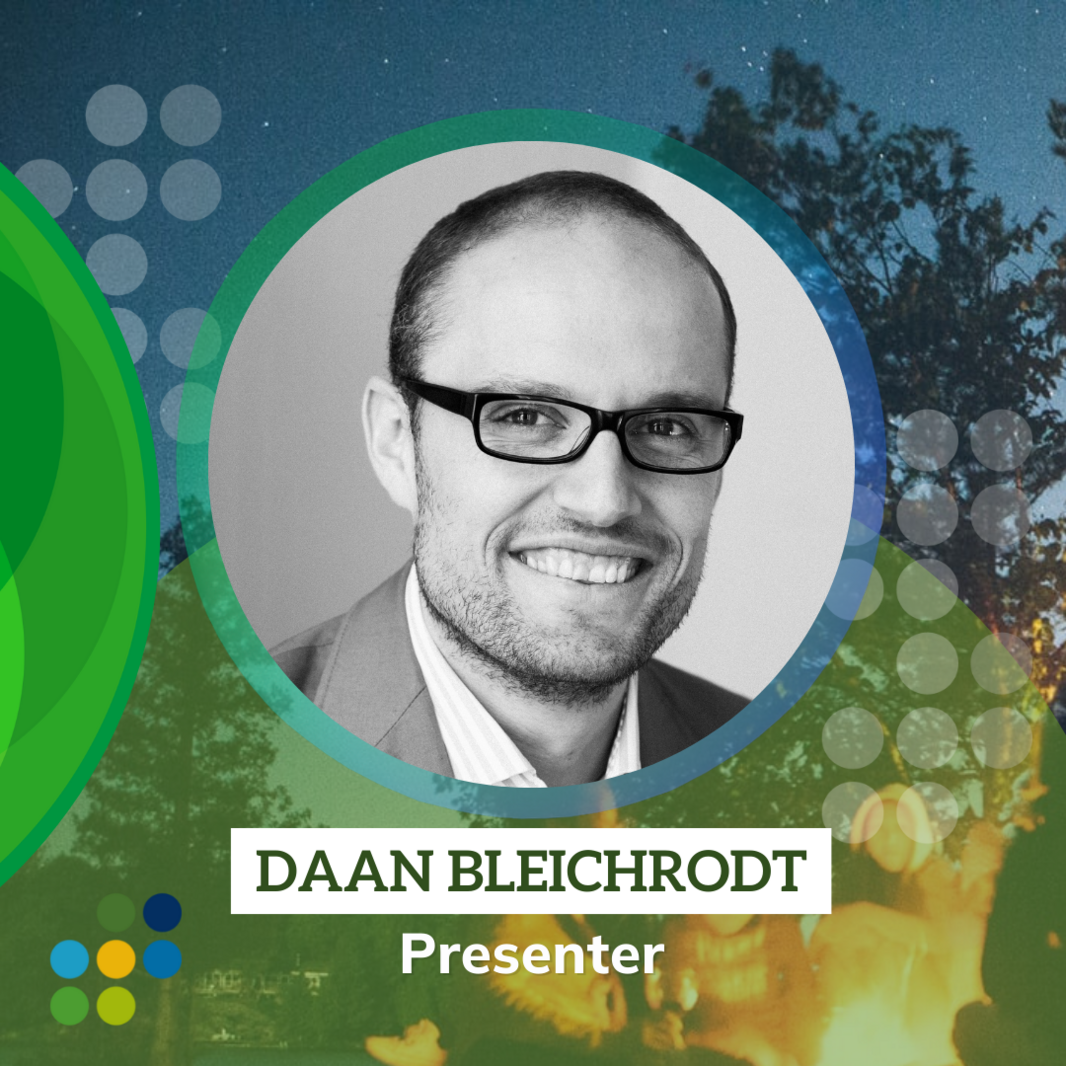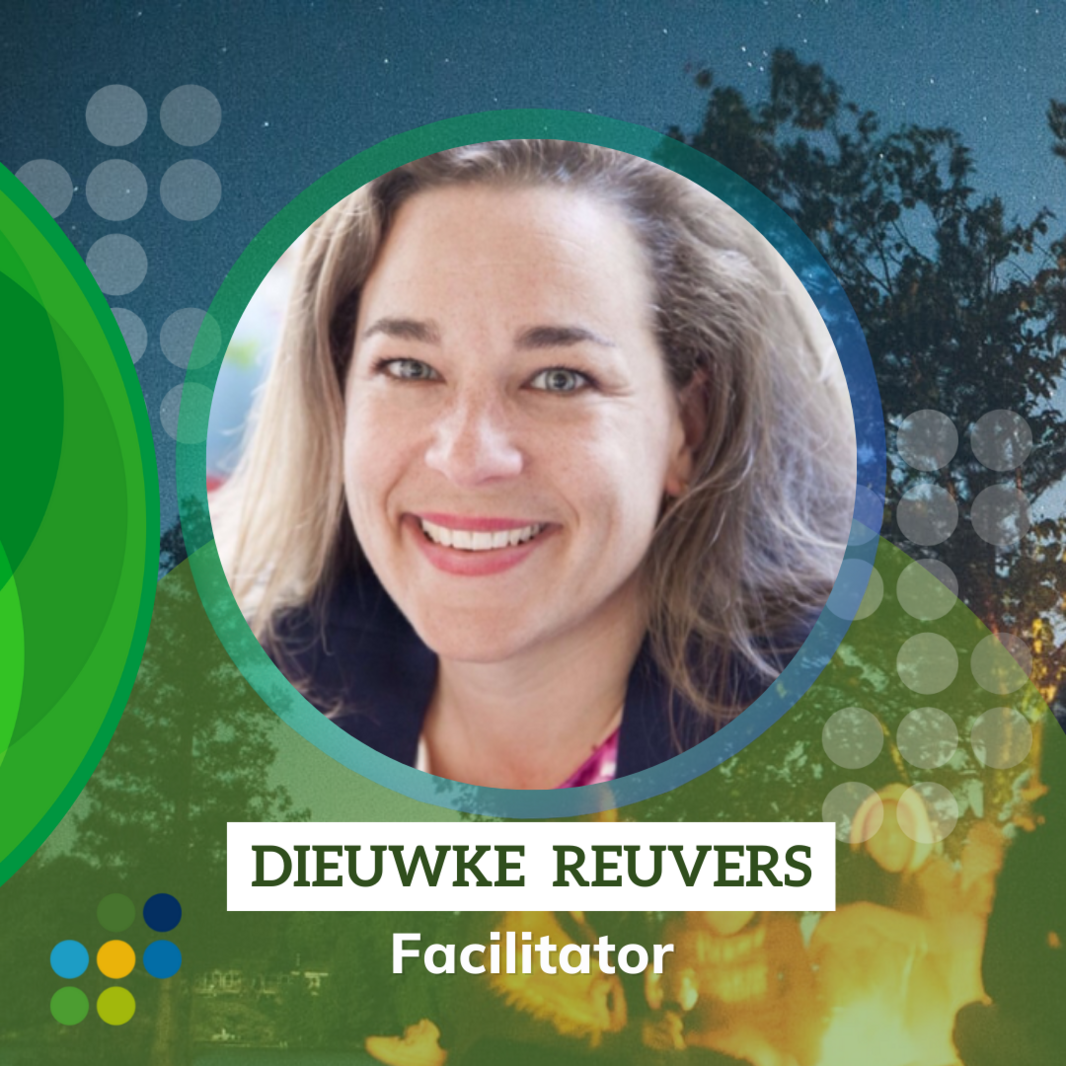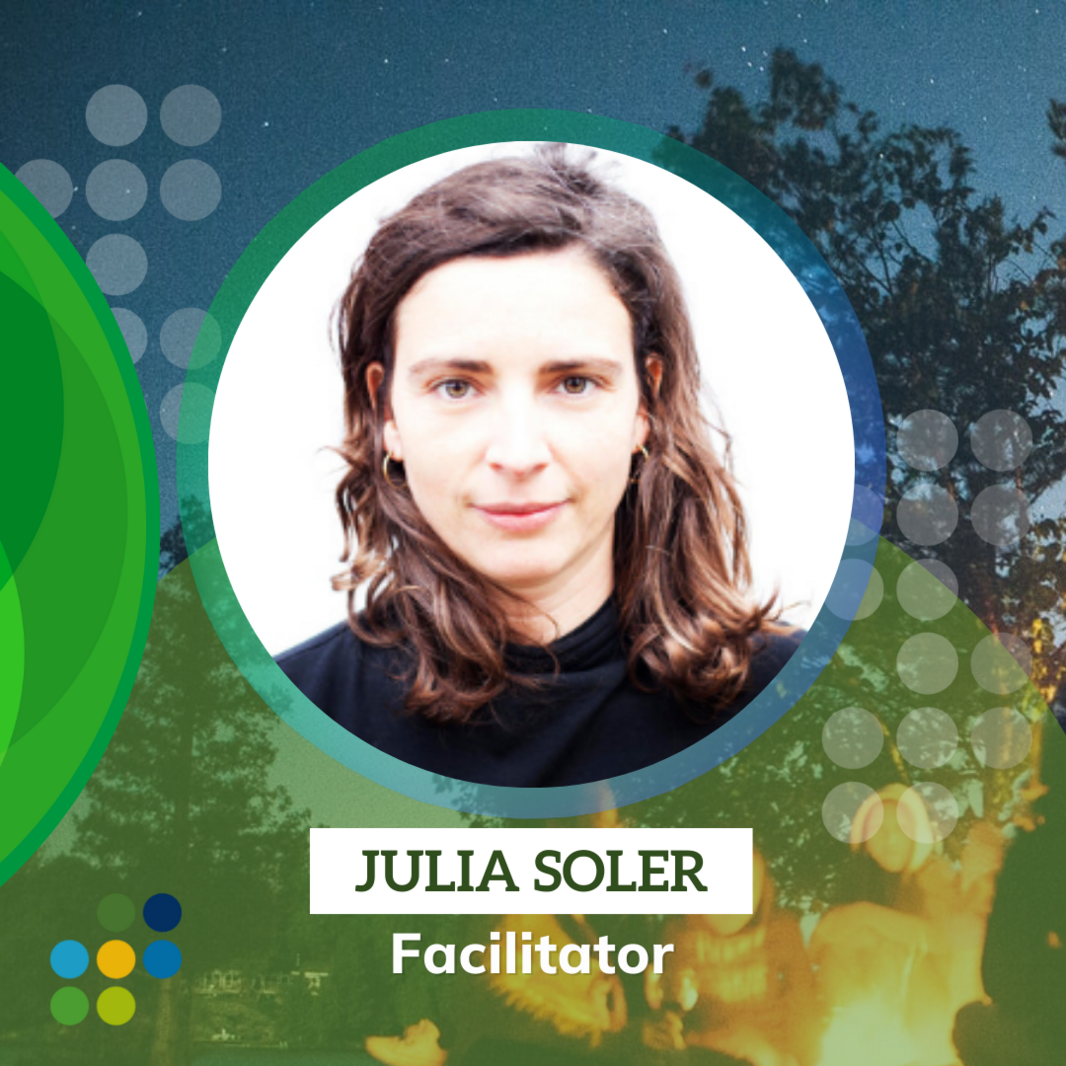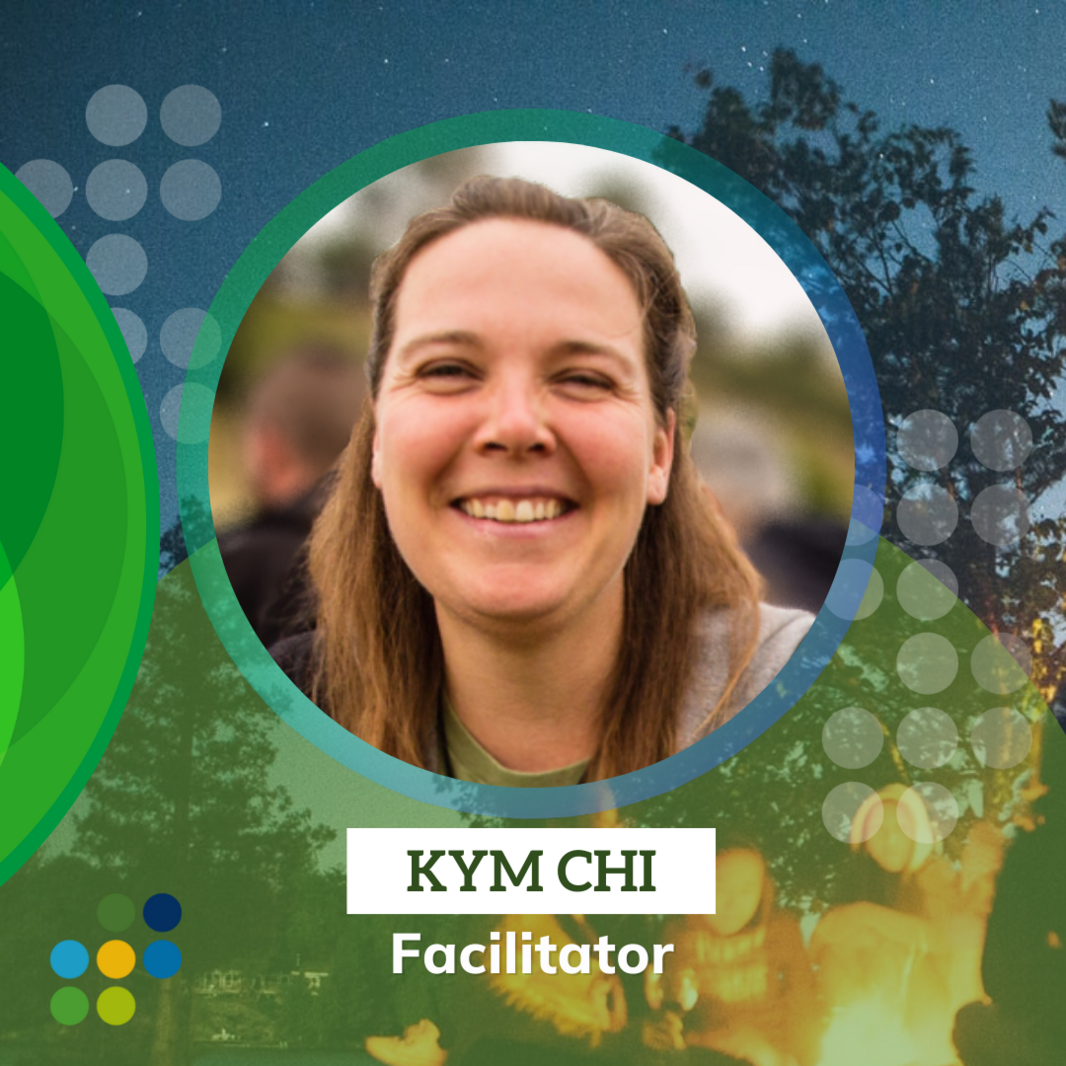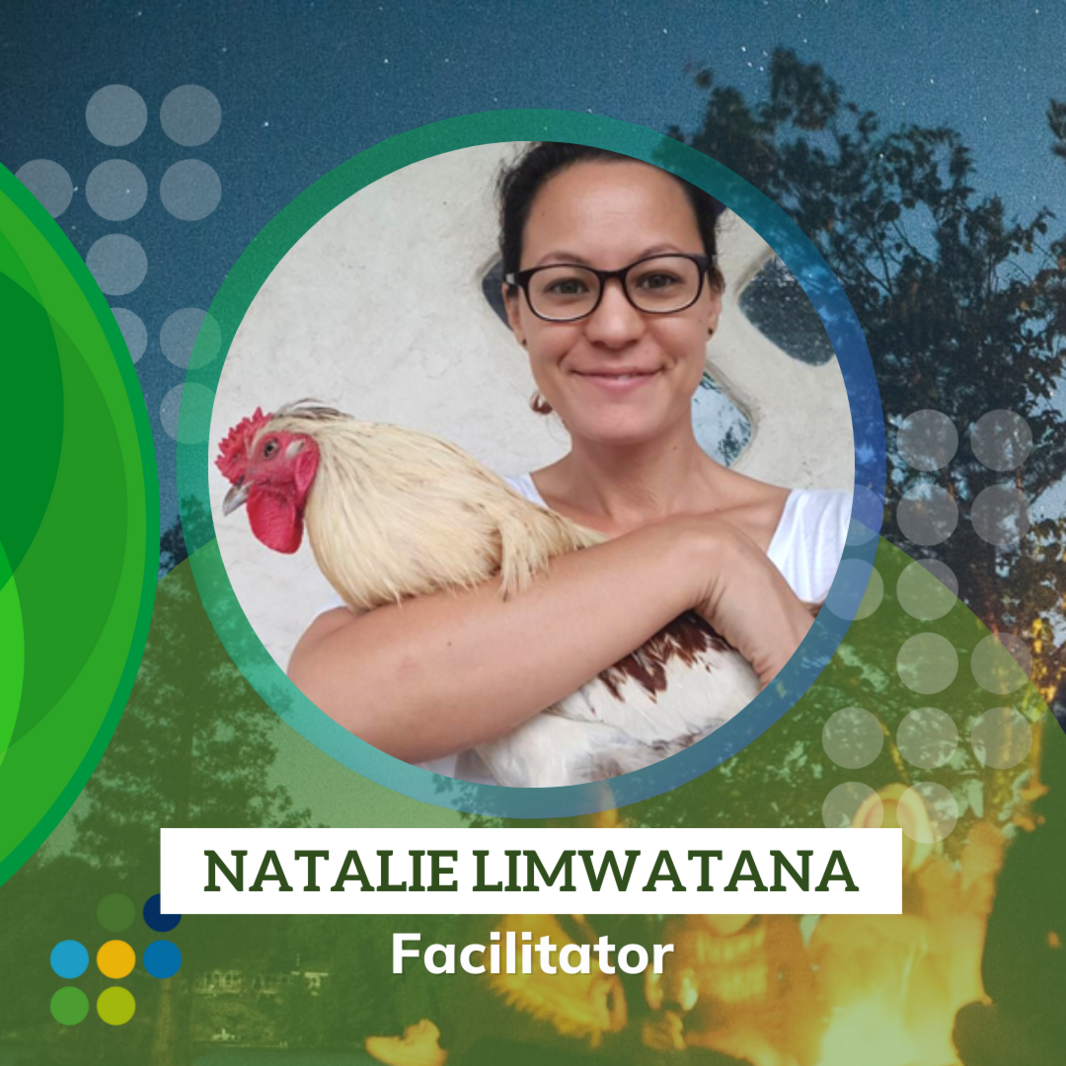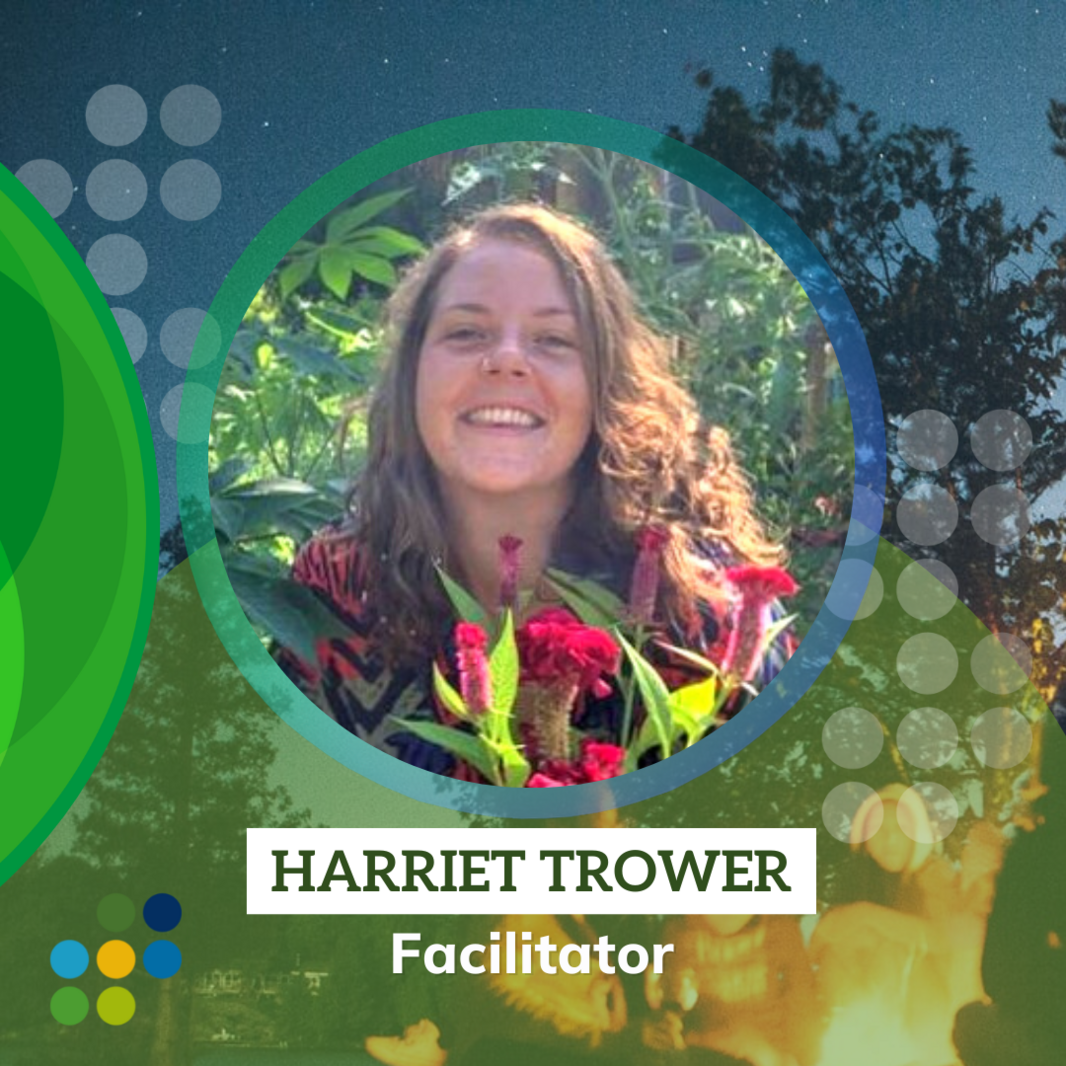Presenters Bios
Ashleigh is an Educational and International Development professional with 14 years experience working within the educational field. Starting out as a teacher, she moved into the world of development, creating trainings for primary school teachers across sub-saharan Africa to help them support their students to increase literacy levels. But during these travels she felt an intense dismay for the destruction of the ecosystems she'd been so excited to visit, so pivoted to create a solution to this destruction. She feels an indigenous level of connection to her kin and lives happily amongst them on the outskirts of Dartmoor in the UK. She is one of the Co-Founders of the Ecosystem Restoration Camps movement, getting involved in 2016 before the movement had begun, as an act of hope from the depths of climate anxiety and depression. Her current role is managing the Education Department of the foundation that supports the camps movement, working with camp managers and experts to create a myriad of ways in which everyday people can learn how to restore degraded ecosystems. She is living her purpose and passion and loving every minute of it.
Pieter van der Gaag is Executive Director of the foundation set up in the Netherlands to support the global Ecosystem Restoration Camps Movement. He has nearly 30 years of experience in solutions for sustainable economic development in management roles at NGOs and in the financial sector. Next to his role as executive director of ERC he is also independent chair of the Dutch International Responsible Investment Agreement for Pensionfunds. This agreement brings together the Netherlands Ministries of Finance, Social Affairs and Foreign Relations, the Dutch Pension Sector (1.8 trillion EUR in Assets under Management – 95% of the total Dutch pension market), Dutch Trade Unions and large Dutch NGOs. He also chairs the Trustone Initiative, set up by the Dutch and Flemish Government, the Dutch en Flemish Natural Stone business sector, Trade Unions and NGOs aiming to improve labour conditions in stone quarries and processing factories around the world. In the past he represented civil society at the UN, the OECD and the EU. He was also an entrepreneur owning his own business that provided a retail platform for sustainably produced consumer products, bringing together 30 brands from around the world. For more information: https://www.linkedin.com/in/pietervandergaag/
Celia Gregory is an artist and an environmentalist with over 20 years experience creating and implementing a wide variety of creative projects, including large scale commissions. She specializes in mosaics and co-authored the book The Art of Mosaic. Her experiences as a diver and her passion for marine life led her to founding The Marine Foundation, an international eco arts organization with the goal of pioneering a creative approach to the well-being of our oceans, embracing issues of marine conservation from an innovative and creative perspective, facilitating localized action, and raising awareness of the issues facing marine ecosystems internationally. The Marine Foundation has successfully developed projects in several international locations, partnering with scientists, local environmental NGO's and facilitating programs for local communities. The Living Sculptures in the Sea program, addresses coral reef degradation by restoring marine habitat with the creation of underwater sculptures that serve to raise awareness and protect and promote sustainable tourism in the area.
Sarah Queblatin is a regenerative design strategist and facilitator weaving collective experiences in peace building, cultural heritage, environmental education, and humanitarian assistance. Her life-long practice is in restoring and re-storying narratives of place and belonging through ecosystem restoration and leadership.
Sarah founded Green Releaf Initiative in the Philippines working with regenerative design in disasters and displacement. She serves as a founding member of Permaculture for Refugees; a member of Re-Alliance, UNDP’s Conscious Food Systems Alliance, and of the Global Ecovillage Network Oceania and Asia which she also represents at UN climate conferences.
Sarah co-designed REGEN NATIONS, a design lab on regeneration in Asia and the Pacific. She also crafted the proposal for Principle 0, to formally acknowledge traditional ecological knowledge in permaculture. She founded Living Story Landscapes, harnessing cultural memory and imagination in climate and conflict vulnerable communities.
Sarah holds a Merit Diploma from Blue Mountains Permaculture Institute, along with an advanced Permaculture Certificate from Aranya and Guilda Permaculture. She trained in Ecosystem Restoration and Ecovillage Design Education with Gaia Education and recently completed the Regenerative Practitioner course with the Regenesis Institute.
Alan Watson Featherstone
Alan Watson Featherstone is an ecologist, nature photographer and inspirational public speaker. In 1986 he founded the award-winning Scottish conservation charity, Trees for Life, and was its executive director for almost 30 years. During that time it became the leading organisation working to restore the Caledonian Forest in Scotland and took on ownership of the 10,000 acre Dundreggan Estate in Glenmoriston as its flagship project for native woodland recovery. Through his work with Trees for Life, Alan helped to provide the inspiration for other ecological restoration projects in the Scottish Borders, on Dartmoor in England and for the creation of the Yendegaia National Park in Tierra del Fuego, Chile. He also founded the Restoring the Earth project, to promote the restoration of the planet’s degraded ecosystems as the most important task for humanity in the 21st century.
https://alanwatsonfeatherstone.com www.treesforlife.org.uk
Morag Gamble is a global permaculture ambassador who’s work spans 3 decades and 6 continents. As founder of the Permaculture Education Institute, she teaches regenerative educators and designers around the world, and collaborates daily with East African refugee permaculture and permayouth programs supported through her registered charity, the Ethos Foundation.
Social and ecological activist for almost three decades. I co-founded my first transformative non profit coop on 2006, a permaculture rural center. I'm Environmentalist and MSc in Systemic Sustainability, as well as permaculture diplomat and specialist in noviolence. I've been involved on the regensis learning community for 7 years. Nowadays I'm working on regenerative development, community resilience and social and solidarity economy from a transrural perspective. My main skills and capabilities are regenerative design, cocreative facilitation and accompanying communities and organizations to adapt to systemic challenges through theories of change towards resilience. I teach resilience and regeneration in different universities as well.
Patrick, a Cambridge-educated molecular geneticist, represents CIFOR-ICRAF - the Centre for International Forestry Research and World Agroforestry- to policy makers, donors and corporate partners in Europe and beyond.
Patrick’s interests sit at the nexus of land restoration and human security. His firm conviction, drawn from decades of pioneering research, is that marrying traditional and advanced land management knowledge is the most promising pathway to rural prosperity, a giant help to mitigate our impact on biodiversity and the atmosphere and, tantalizingly, peace in a warming world.
Patrick has been active at the science-policy interface since the late 1980s, with a start teaching biology in the Hindu Kush. As a young European official, he then pioneered a new way of using communications to deal with the environmental legacy of communism across the former Soviet Union before leaving for the private sector. There, he engaged with the disastrous environmental legacy of China’s Great Leap forward through an effort which became the first large-scale private-sector investment in tree planting for watershed remediation in that country. His career has been varied; amongst the highlights were a role helping ESA, the European Space Agency, develop its Vision for Human Spaceflight, and helping the Republic of Georgia defend itself against Russian aggression in 2008 (we warned the world back then that, unless it took a firm stand with Mr.Putin, Ukraine would be next – it didn’t, and here we are).
Patrick serves as a Founding Trustee and Treasurer of IUAF, the International Union of Agroforestry. He also serves as the Vice-President of the European Agroforestry Federation; a member of the Steering Committee of International Land Lives Peace, which works at the interface between land degration and conflicts; a Senior Fellow of the Global Evergreening Alliance; and a member of several advisory boards. He is the very happily married father of four children ranging from 5 to 30 years old and lives in Waterloo, Belgium.
Neal Spackman is an internationally recognized regenerative designer and entrepreneur, passionate about the interaction between ecology and wealth. In 2010, Neal Co-Founded the Al-Baydha Project in Saudi Arabia, where he led the design and training of local Bedou tribesmen in both construction and management of a large scale watershed restoration and agroforestry system that reverses desertification, increases biodiversity, creates soil, and establishes agricultural production.
More recently, he Co-Founded and is the CEO of the Regenerative Resources Corporation, a company that solves challenges of food, water, biodiversity, climate, and poverty, by transforming degraded coastal landscapes into mangrove-based agroecologies.
More recently, he Co-Founded and is the CEO of the Regenerative Resources Corporation, a company dedicated to transforming degraded landscapes into productive ecologies.
https://www.gsb.stanford.edu/programs/msx/why-stanford-msx/current-students/neal-spackman
John Button, Australian, has been working as a permaculture professional internationally for more than thirty years, based mainly in Europe and India, but consulting, designing , teaching and implementing projects in diverse climates and contexts all over.
His primary passion is regenerating degraded landscapes to sustainable productivity, but believes that virtually all human-modified land can be improved, and is convinced that if land does not become ecologically healthier at the same time that it is becoming productively and economically more viable, then it is simply poor design and implementation.
Lisa is an artist, designer and educator. She is a founding partner and art director of Biomatrix Water Solutions, a company that combines art, nature, and technology to create solutions to issues of water pollution and habitat degradation. In her own time, Lisa is an award winning painter. https://www.biomatrixwater.com/
Júlia Soler, Barcelona
My passion for ecology was consolidated in 2011, when I lived and worked at La Fragua, an
artistic rural community project in the Los Pedroches valley, in southern Spain.
Since then, over the years I've had the opportunity to collaborate and gain experience working
as a farmer in various permaculture, organic farming and ecovillage projects such as Hertha
Levefællesskab in Denmark, Pluk CSA in the Netherlands, Fundación Viracocha, Aluna
Permacultura and Proyecto Gaia in Colombia, Fertile Roots in Morocco and Los Portales
Ecovillage in Spain.
In Colombia I met some women and men who deeply marked and inspired me. Their sense of
place in the landscape and their indigenous worldview was something that I had not
experienced before, and thanks to those encounters, I returned to Europe with a different
perspective and a renewed worldview that has accompanied me ever since in everything I do.
I obtained my PDC at the Institut de Permacultura Montsant in 2017. And I have also studied
Food Forest Design for Mediterranean climates with Phoenicurus Cardedeu and PermaMed
Mallorca.
Since 2018, I am back at my hometown, Barcelona, where I work with Cityplot, a European
collective of urban farmers & permaculture designers ( based in Amsterdam, Berlin and
Barcelona) designing and implementing permaculture projects and urban community gardens
as well as offering educational programs for schools and online and live workshops and
courses.
I am also an active member of Green City Lab Barcelona collective, where we offer
consultations and facilitation for local groups in their transition to an ecological and social
regenerative urban living.
Parallel to that, I’m an online facilitator at Gaia Education within the GEDS Program ( Design for
Sustainability ), the Ecosystem Restoration Design Course (in partnership with Ecosystem
Restoration Camps ) and most recently the Principles and Practices of Deep Transformation
course with Jeremy Lent.
Ann Doherty
Ann is an urban farmer, educator, beekeeper and worm composter. She studied urban agriculture at the University of Guelph (distance learning) and at Warmonderhof in the Netherlands, and has a Permaculture Design Certificate from Linder van den Heerik. She was the communications coordinator for the global environmental federation Friends of the Earth International for 16 years before she decided to take the leap into urban agriculture in 2011. In 2017, she co-initiated a Community Supported Agriculture farm in Amsterdam that will feed around 75 families in 2018. Originally from New England, she has lived and gardened in Amsterdam for more than two decades.
Leonie Woidt-Wallisser
Leonie has a background in architecture, the fine arts and permaculture. Since having left her family’s off-grid homestead and extensive garden in small-town South Australia, she has lived amongst the urban populations of Australia, Germany, the US and the Netherlands. Her theoretical research in restoration ecology in the cultural sector, undertaken as part of studies at the Gerrit Rietveld Academie in Amsterdam, triggered her to initiate Cityplot in 2007. She co-coordinates the workshop programme and gardens in Berlin.
Leonie has many years of experience teaching and consulting in multiple facets of permaculture: food growing systems; community building and social systems; architecture, urban and landscape planning; natural building and construction with upcycled materials; nature connections and spiritual ecology; holistic and regenerative practices on all levels; and beyond. Life coming full-cycle, step-by-step she nears a self-sufficient lifestyle and delves ever deeper into the worlds of ethnobotany and deep ecology.
A Minnesota native, Wil Crombie and his wife Carly steward a 40+ acre regenerative farm called Organic Compound in Faribault, MN. Wil is a co-owner of the Tree-Range® Chicken brand and owner of Man Alone Media where he specializes in filmmaking, design & web marketing. Through his work as a farmer and marketer Wil seeks projects that focus on healthy ecosystems and thriving communities. Wil has worked with organizations like Savanna Institute, Regenerative Agriculture Alliance, Regeneration International, Organic Consumers Association and Sea Shepherd. He continually looks forward to helping a new generation navigate itself through the digital realms and on the ground, telling powerful stories that return people to regenerative ways of thinking and community based living.
P'Swae family has lived in Ban Nong Tao in Northern Thailand for 5 generations. They are Karen and live and farm the land as a family. He is child number 6 of 9 children, and now has 3 children of his own, the youngest 2 months old.
After high school he returned to his community to farm because he did not have money to go to college. So whilst he farmed and worked in the local land office, he studied via open university until he completed a masters with Khon Kaen University. In 2009 he won a scholarship to go to Japan and train in rural leadership. He also had the chance to travel and represent Karen people in many countries.
P'Swae is actively involved in Indiginous land rights and community forest management. He started 'Lazy man' coffee in 2011 to promote community enterprise with other village leaders and to find alternative way to monocrop farming.
Oliver Goshey is a designer, educator, and consultant for regenerative social and land based projects.
After studying as a marine engineer and working mostly in blue collar trades such as commercial shipping, trail building, construction, and farming, across the world, Oliver has built a unique and wide perspective implementing projects and managing complex systems as a practitioner on the ground.
Struggling to justify his participation in destructive and extractive industries, Oliver quickly shifted his focus to land stewardship and rebuilding community connections. Since then he’s applied his unique experiences from 15 years of travel to helping clients and organizations to design and build natural healthy homes, develop businesses for social equity, and restore healthy productive landscapes.
Regenerative Skills is Oliver’s effort to create a larger and more engaged community around regenerative living by making the most cutting edge knowledge and techniques accessible to everyone. He also works with Climate Farmers, a company dedicated to scaling regenerative agriculture in Europe, as the regenerative transition facilitator working with growers of all kinds across Europe.
Daan Bleichrodt lives in the Netherlands (Den Dolder to be specific) with his wife Kiki and their two boys Mees and Tijn. Daan Bleichrodt is Chief Tree Planting Officer at IVN and leads the Tiny Forest program in the Netherlands. IVN is the intitute for environmental education and is run by it’s 25.000 volunteers and 150 employees. The mission of IVN is to reconnect people to the natural world. Tiny Forest is one of the main programs of IVN, and it runs in 60 municipalities. Together with schools, municipalities and volunteers we will restore 250 small, native woodlands in cities before 2022. Tiny Forest growing more popular every day. This is why we are expanding beyond the Netherlands, and will help other European countries to set up a similar program. Hopefully many will join us after following this course, this is the only way we can restore our lost forests.
Facilitators Bios
Dieuwke grew up in Canada and France, studied in the Netherlands and then worked with passion in Hotel management around the world for more than 15 years. Seeing the effects tourism was having on our precious planet and enlarging the distance between people instead of closening them, she decided to redirect her energy towards being part of the solution.
After biking in Africa, picking up plastic of Indonesian beaches and doing a deep dive into agriculture, she is finding her way back into the heart of nature again through restoration. Participating in this restoration course confirmed, she was on the right path. She has helped to plant a food forest, building community in Amsterdam through several initiatives, reading nature in Portugal and while helping with water retention and wind breaks, visiting many projects and inspiring people.
She is currently raising awareness with the Footprint Challenge and attempting to change the system with Fairbnb.coop, to allow the strength of tourism to contribute to restoring local ecosystems. And to keep the hands in action and feet on the ground she helps out at the Fruit Tuin van West, an urban orchard, that follows biodynamic methods.
Her cultural awareness, adaptability, eye for efficiency and opportunities, and love for connecting people are transferable skills that are needed in the transition we are going through.
She is working hard to make her dream come true: living in a wikkelhouse made of reed that helped to restore peat lands in the Netherlands, combined with travels to future restoration projects around the world, be it in Spain, Morocco, Jordan or Indonesia.
Graduated in art history, photographer and urban permaculture gardener.
Julia’s passion for ecology was consolidated in 2011, when she lived and worked at La Fragua, an artistic rural community project in the Los Pedroches valley, in southern Spain.
Since then, over the years she has had the opportunity to collaborate and gain experience working as a farmer in various permaculture, organic farming and ecovillage projects such as Hertha Levefællesskab in Denmark, Pluk CSA in Holland, Fundación Viracocha, Aluna Permacultura and Proyecto Gaia in Colombia, Fertile Roots in Morocco and Los Portales Ecovillage in Spain.
Júlia obtained her PDC at the Institut de Permacultura Montsant in 2017. And she has also studied Food Forest Design for Mediterranean climates with Phoenicurus Cardedeu and PermaMed Mallorca.
Since 2018, she lives in Barcelona where she works with Cityplot, a european collective of urban farmers & permaculture designers (with offices in Amsterdam, Berlin and Barcelona) designing and advising permaculture and urban garden projects and offering educational programs for schools as well as online and live workshops for adults.
Kym Chi is a grateful settler on the unceded Coast Salish territories of the Squamish and shishalh Nations where she stewards land, facilitates courses, runs a holistic healing practice and is the Dean of the School of Permaculture Design at Pacific Rim College. Kym has spent many years growing her understanding of the natural world and through this has developed a strong passion for herbalism, plant connection, resilience, creative facilitation, art, community building, decolonization, reconciliation and regenerative design. She continues to do self study and take courses that help her to deepen a healthy relationship with nature and its inhabitants. In all of her practices, Kym strives to work with empowerment models and feels that her own success is measured on the successes of those she collaborates with along with her allies and friends.
Na is a regenerative designer, mud builder, artist and teacher in North Thailand. She is half British and half Thai and now lives in a mud home in a small rural village. Na has always held a deep fascination of nature and love of art. These two things eventually guided her to where she is now, but prior to this she lived in a city in the UK and worked in corporate banking. After 16 years of this unsustainable lifestyle, burn out gave her the chance to choose a more meaningful path.
She now focuses regenerative action and is passionate about helping people find their way to a life in better balance with nature. Her life is full of duality and these experiences help her bridge two very different worlds. She spends her time helping individuals, businesses and communities create life enhancing systems. This includes consulting, design and project management for residential, urban and wild spaces, regenerative business, social enterprise and education initiatives. Teaching and mentoring all kinds of projects from design to implementation.
She is a faculty member of Permaculture Women’s Guild specialising in natural building and regenerative design in the tropics.
She is an ambassador for Global Ecovillage Network Oceania and Asia in Thailand embodying living a lighter footprint on mother earth and promoting ecovillage lifestyle. She is co-ordinating the development of ReGEN nations - an online regenerative learning journey blending together elements of Ecovillage Design Education with a project prototyping lab.
She is blessed to be able to contribute her time to local, regional and global community projects including; a closed loop income generating enterprise for vulnerable communities hit by the pandemic; centre for self reliance in northern Thailand; River of Life - a global program by women to support the ongoing work of outstanding women in community leadership.
Na believes in the human potential to transform our world and is honoured to help people learn the skills necessary to do this. We learn and grow stronger together.
Harriet makes people feel comfortable and at ease, and is able to create a safe container for learning to develop.
She is fascinated by the intimate intertwining of social justice and environmental justice, and has been an activist since her teens. She has a background in education, but after two years in a traditional school setting, her frustration was too immense. Thankfully a PDC with the Supernatural Permaculture Centre in the South of Spain came on her radar in 2016, and since then her life has blossomed.
She began WWOOF-ing and Help Exchanging at permaculture farms in Spain, Ecuador, Colombia, Costa Rica, Nicaragua and the Dominican Republic, learning through practice and hands-on experience how others were living sustainably and resourcefully. She lived a nomadic lifestyle for a few years, absorbing in different cultures and climates, grateful for all the experiences and connections.
For the past 3 years she's been based in the Dominican Republic working as an environmental consultant for La Mariposa Foundation; a girl's only learning centre offering holistic education to the local girls of Cabarete. She created an environmental curriculum, an activist program and an 'Eco Heroes' activity book which was printed and gifted to 2000 local students along the North Coast of the island.
During The Great Pause of 2020, she had time to reflect and nourish her core being, and is eternally grateful for prizing adaptability and resilience. She joined a covid crisis response coalition called Cabarete Sostenible in April 2020 as a volunteer in the community garden. She lovingly shares her knowledge and design skills to local residents and other volunteers, to ensure food sovereignty and sustainable regenerative practices are a part of the future.
She will continue to empower seed keepers, land guardians and harvest sharers worldwide.


